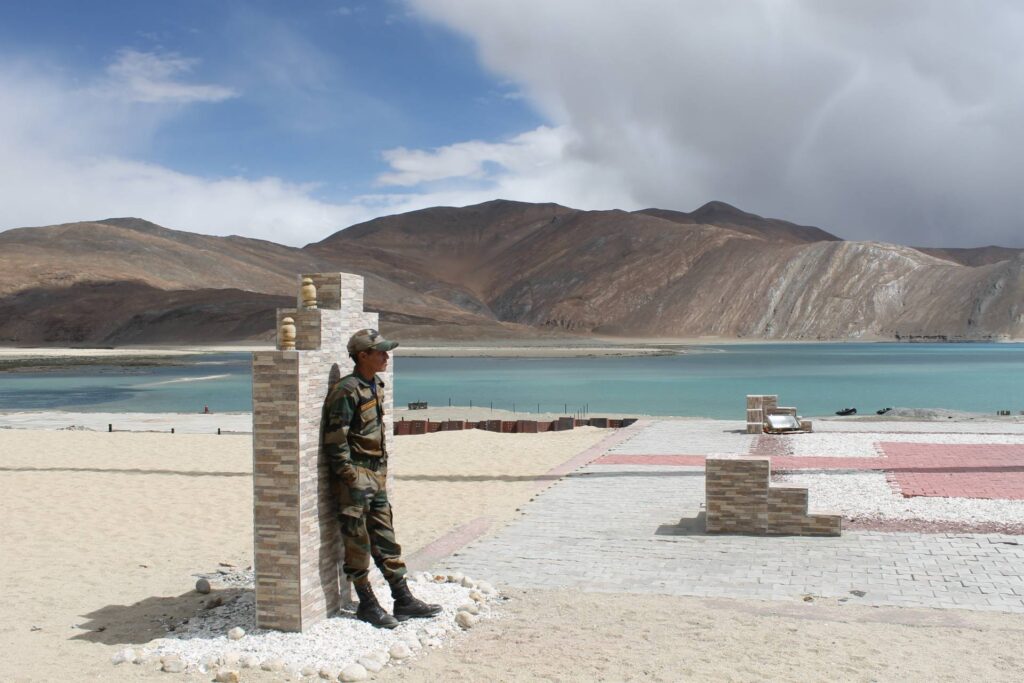Indian Prime Minister Narendra Modi pens an op-ed exactly a year after India assumed the presidency of the G20 for the first time and highlights the country’s achievements.
Today marks 365 days since India assumed the presidency of the G20. It is a moment to reflect, recommit, and rejuvenate the spirit of “Vasudhaiva Kutumbakam — One Earth, One Family, One Future.”
As we undertook this responsibility last year, the global landscape grappled with multifaceted challenges: recovery from the Covid-19 pandemic, looming climate threats, financial instability, and debt distress in developing nations, all amid declining multilateralism. In the midst of conflicts and competition, development cooperation suffered, impeding progress.
When India assumed the presidency of the G20, it sought to offer the world an alternative to the status quo. We pushed for and achieved a paradigm shift from a GDP-centric to a human-centric progress. India reminded the world of what unites us, rather than what divides us. India changed the global conversation, which had to evolve. Under Indian leadership, the interests of the few gave way to the aspirations of the many. This required a fundamental reform of multilateralism as we knew it.
Indeed, four words — inclusive, ambitious, action-oriented, and decisive — these four words defined India’s approach as G20 president. In fact, the New Delhi Leaders’ Declaration (NDLD) was unanimously adopted by all G20 members and is testimony to our commitment to deliver on these principles.
A true multilateralism
Note that Inclusivity has been at the heart of our presidency. For this reason, we championed permanent membership of the G20 for the African Union (AU). The inclusion of the AU into the G20 has integrated 55 African nations into the forum. Now, the G20 has expanded to encompass 80% of the global population.
India’s more inclusive stance towards the AU and the Global South has fostered a more comprehensive dialogue on global challenges and opportunities. The first-of-its-kind ‘Voice of the Global South Summit,’ convened by India in two editions, heralded a new dawn of multilateralism. India has brought the Global South’s concerns into mainstream international discourse. Our country has also ushered in an era in which developing countries have taken their rightful place in shaping the global narrative.
Inclusivity also infused India’s domestic approach to G20, making it a people’s presidency that befits that the world’s largest democracy. Through “Jan Bhagidari” (people’s participation) events, India’s G20 activities reached 1.4 billion citizens. India’s national government partnered with all 28 of India’s states and all eight of its union territories to boost people’s participation.
A clear developmental agenda
On substantive elements, India focused the international attention on broader developmental aims. As part of the 2030 Agenda, India delivered the G20 2023 Action Plan to Accelerate Progress on the Sustainable Development Goals (SDGs). This plan adopted an integrative, proactive strategy along with a cross-cutting, action-oriented approach to interconnected issues involving SDGs, including health, education, gender equality and environmental sustainability.
A key area driving this progress in SDGs is robust Digital Public Infrastructure (DPI). On the DPI front, India’s recommendations were decisive. Even in the West, people are now realizing the revolutionary impact of digital innovations such as Aadhaar, UPI, and Digilocker on the Indian economy and daily life. Through G20, India successfully completed the Digital Public Infrastructure Repository, making a significant stride in global technological collaboration. This repository, featuring over 50 DPIs from 16 countries, will help the Global South build, adopt, and scale DPI to unlock the power of inclusive growth.
For our One Earth goal, we introduced ambitious and inclusive aims to create urgent, lasting, and equitable change. The NDLD’s Green Development Pact addresses the challenges of choosing between combating hunger and protecting the planet. This pact outlines a comprehensive roadmap in which employment and ecosystems are complementary, consumption aligns with climate consciousness, and production is planet-friendly.
Simultaneously, the G20 NDLD calls for an ambitious tripling of global renewable energy capacity by 2030. Coupled with the establishment of the Global Biofuels Alliance and a concerted push for Green Hydrogen, the India-led G20 has demonstrated bold ambitions to build a cleaner, greener world. Sustainability and conserving the environment have always been central to India’s ethos. In this G20 Summit, India pioneered Lifestyles for Sustainable Development (LiFE). This new LiFE initiative could greatly benefit the world through India’s age-old sustainable traditions.
The question of climate, gender and equity
The NDLD also addressed the burning issue of our times: climate change. India highlighted the need for climate justice and equity, urging substantial financial and technological support for the Global South from the Global North. For the first time, the Global North recognized the need for a quantum leap in the magnitude of development financing. Under India’s leadership, this figure moved upward from billions to trillions of dollars. In fact, the G20 acknowledged that developing countries require $5.9 trillion to fulfill their Nationally Determined Contributions (NDCs) by 2030.
Since countries need monumental financial resources for their NDCs, the G20 emphasized the importance of better, larger, and more effective multilateral development banks (MDBs). Key MDBs include the World Bank, Inter-American Development Bank, Asian Development Bank, the African Development Bank, and the European Bank for Reconstruction and Development. In addition to improving MDBs, India is taking a leading role in reforming the United Nations. In particular, India is working to restructure principal organs of the United Nations such as the Security Council to create a more equitable global order.
Concerning equity, the NDLD put gender equality center stage. India has pioneered the formation of a dedicated working group on the empowerment of women, which will commence work next year. India’s Women’s Reservation Bill 2023 reserves one-third of the seats in the national parliament and state legislative assemblies for women, epitomizing India’s commitment to women-led development that could serve as a model for the rest of the world.
The NDLD embodies a renewed spirit of collaboration across key global priorities, focusing on policy coherence, reliable trade, and ambitious climate action. It is a matter of great national pride that the G20 achieved 87 outcomes and adopted 118 documents during India’s presidency. Note that this is a marked increase from the past. Under India’s leadership, the G20 certainly got a lot done.
India also led deliberations on geopolitical issues and their impact on economic growth and development. One such issue is terrorism, which kills innocents and causes severe economic damage. It is clear that the senseless killing of civilians is unacceptable, and we must address it with a policy of zero-tolerance. The world must prize humanitarianism over hostility and ensure that our era does not turn into one of terrorism, violence or war.
In conclusion, I am delighted that India achieved something extraordinary during its presidency. We revitalized multilateralism, amplified the voice of the Global South, championed development, and fought for the empowerment of women, everywhere.
As India hands over the presidency of the G20 to Brazil, we do so with the conviction that our nation’s collective steps for people, planet, peace, and prosperity, will resonate with the world for years to come.
The views expressed in this article are the author’s own and do not necessarily reflect Fair Observer’s editorial policy.
Support Fair Observer
We rely on your support for our independence, diversity and quality.
For more than 10 years, Fair Observer has been free, fair and independent. No billionaire owns us, no advertisers control us. We are a reader-supported nonprofit. Unlike many other publications, we keep our content free for readers regardless of where they live or whether they can afford to pay. We have no paywalls and no ads.
In the post-truth era of fake news, echo chambers and filter bubbles, we publish a plurality of perspectives from around the world. Anyone can publish with us, but everyone goes through a rigorous editorial process. So, you get fact-checked, well-reasoned content instead of noise.
We publish 2,500+ voices from 90+ countries. We also conduct education and training programs
on subjects ranging from digital media and journalism to writing and critical thinking. This
doesn’t come cheap. Servers, editors, trainers and web developers cost
money.
Please consider supporting us on a regular basis as a recurring donor or a
sustaining member.
Will you support FO’s journalism?
We rely on your support for our independence, diversity and quality.












Comment